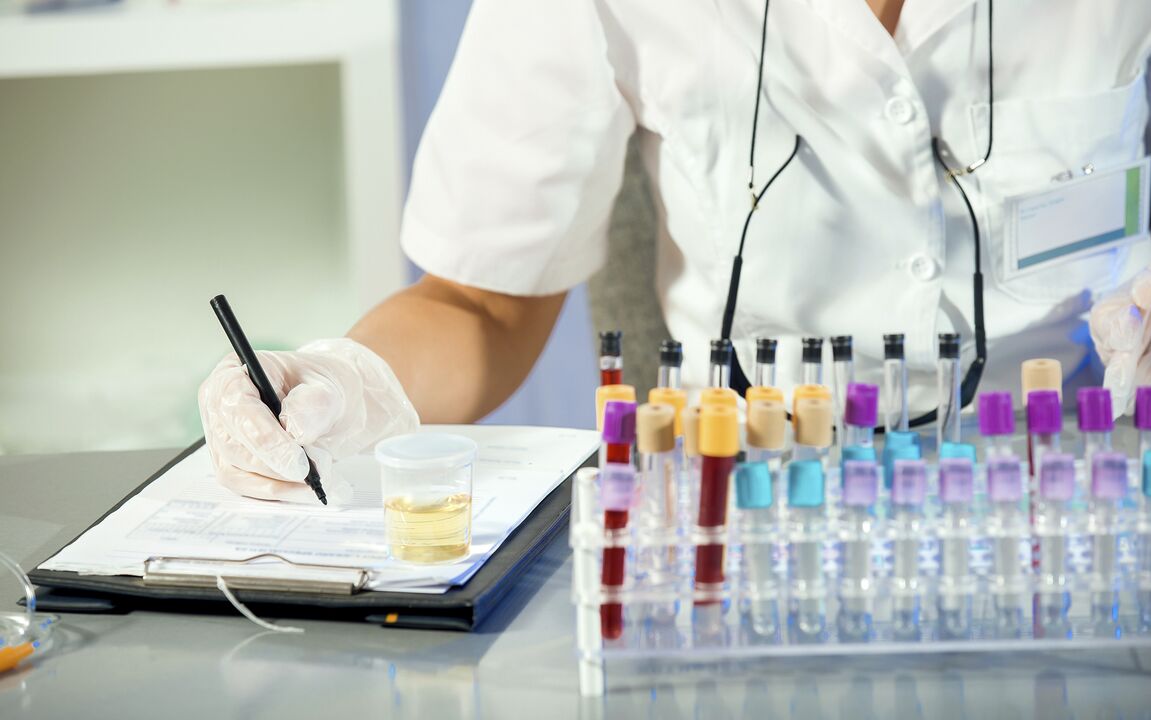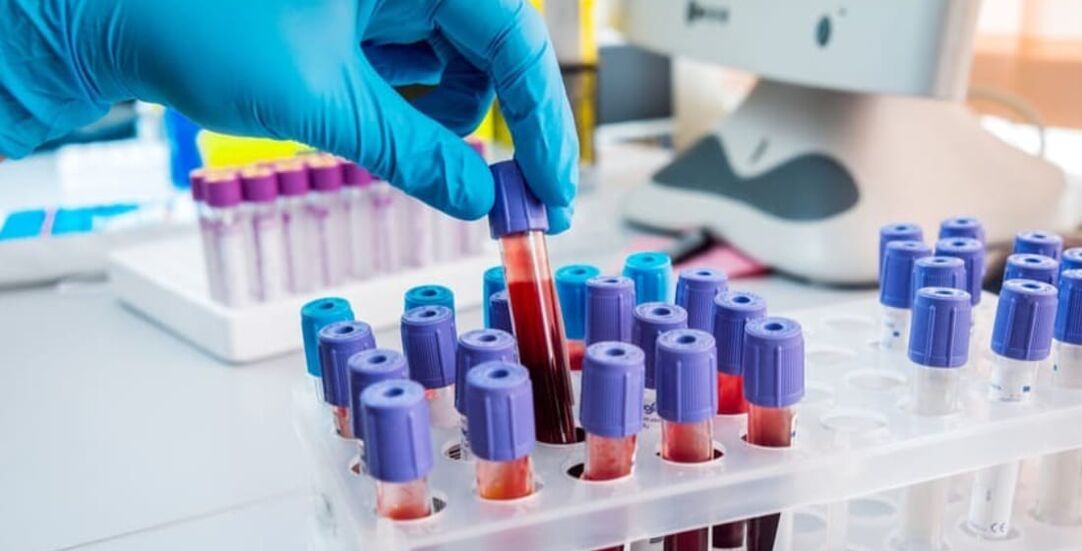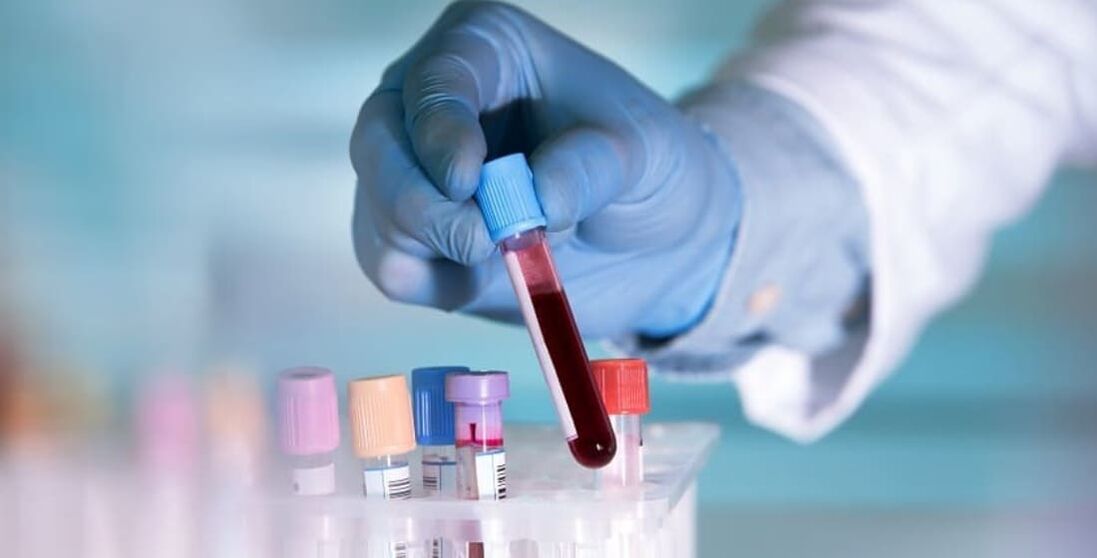
The main step in the rapid treatment of any disease is diagnosis. Timely laboratory tests allow us to provide the most accurate information about the course of the disease. Preparatory measures are needed to achieve this. It is in the natural interest of most of our compatriots: how does ethanol affect the accuracy of analyzes?
Does alcohol affect blood tests?
Alcohol may varyblood composition:
- reduces the number of red blood cells and hemoglobin levels,
- reduces the urea content,
- lower lactate levels,
- lowers glucose levels
- increase the percentage of triacylglycerols.
Alcohol can make the blood more viscous, increasing the rate of thrombosis. The increase in the number of adherent cells and red blood cells can be interpreted as megaloblastic anemia.
The biochemistry of the blood shows the largest differences when consuming alcohol before the test. The decrease in uric acid is due to a violation of the circulatory mechanism. An increase in the concentration of triacylglycerols indicates the presence of ischemia or hepatitis.
In order to ensure that post-alcohol testing does not mislead physicians, the specialist should be informed of this condition upon receipt of the referral.
In addition to distorting test results, alcohol can distort the operation of laboratory equipment. The effect of the reagents on ethanol distorts blood sugar levels, making it impossible to start treatment for diabetes mellitus in time.
How alcohol affects tests
Ethanol is not the main condition that must be eliminated before going to the laboratory. Not only smoking or eating before the test, but also alcohol consumption can reduce the accuracy of the instruments.
Ethanol distortion of the assay may render the diagnosis ineffective. The more alcohol we consume, the less objective the result will be.
General analysis

Exposure to alcohol can skew the resultsand so on:
- kills red blood cells
- increases cholesterol levels by 80% sometimes
- reduces hemoglobin as the concentration of red blood cells also decreases.
If you consume alcohol immediately before the analysis, the number of red blood cells (the number of red blood cells that carry oxygen to all organs or tissues and the return of carbon dioxide) is most likely to decrease.
Alcohol dissolves the membrane of red blood cells, which prevents them from moving naturally and reduces repulsion. Red blood cells begin to clump together. Their plasma concentrations decrease, leading to a decrease in hemoglobin parameters. Clumping of red blood cells leads to the appearance of blood clots and a decrease in the blood microcirculation in the blood vessel.
After the alcohol enters, the blood becomes thicker. The ability of capillaries to penetrate through the lumen is reduced due to the appearance of blood clots. This situation is dangerous to people’s health and lives and prevents a full study of the composition of the blood.
Alcohol reduces lipid production in the liver. This reduces the characteristics of the plasma. These indicators play a major role in the period when a patient is being prepared for surgery. Accurate analysis is essential to monitor a patient’s health status if they have suffered from a severe infectious disease or during the healing of large wound areas.
Blood tests that are takenin less than 12 hoursit can only show general intoxication exactly after drinking alcohol. The decrease in hemoglobin shows only megaloblastic anemia. However, the doctor may refuse to make the diagnosis, citing that the patient had recently consumed alcohol.
Biochemical indicators
Alcohol has the strongest effect on biochemical blood testing. This analysis is the most complete. It helps you know which substances you urgently need and which ones you need to reduce your concentration urgently.
The results of alcohol-induced biochemical research are changingand so on:
- the amount of urea in the blood decreases,
- the data on the oxygen uptake of the body's cells are damaged,
- quantitative indicators of glucose suffer.
The latter factor can be life-threatening because diabetes is diagnosed late.
The increased urea background is also caused by alcohol consumption. Distorted indications of its content can mask severe circulatory disease that can lead to hemorrhagic shock or acute heart failure. Because urea is involved in nitrogen excretion, its increased concentration is a sign of gout and polyarthritis. The accuracy of the diagnosis can only be satisfactory if you abstain from alcohol before the test.

Alcohol consumption before the procedure can cause increased triacylglycerol levels in the bloodstream. This neutral fat, which is found in the bloodstream, indicates abnormal processessuch as:
- arteriosclerosis,
- ischemia,
- cerebral arterial thrombosis,
- viral hepatitis.
Most doctors, in principle, exclude alcoholic medications from their intake before taking blood from a patient. But alcohol is believed to help detect the presence of an infectious disease. But even the smallest dose of ethanol distorts the test results and makes it unsuitable for the doctor.
According to the stories of nurses and doctors, most people do not admit to consuming alcohol before the test. Another side effect that occurs when people who have consumed alcohol the day before are testedare:
- faint,
- severe headache
- nausea.
The amount of blood taken from the vein from the body is negligible. Losing it is not a problem for a person. But if the patient comes for an examination after drinking alcohol, the metabolism usually slows down and blood circulation in the brain slows down.
Venous intake can lead to oxygen deprivation in the brain. This can lead to severe dizziness or fainting. After that, the patient may have a headache for a long time.
Alcohol poisoning can upset the digestive system. The patient may vomit in the office or laboratory from the smell of alcohol or chlorine used for disinfection.
Glucose test
Blood glucose testing is needed for people with endocrine disorders. The blood is taken from a finger. If the patient drank an alcoholic liquid before taking the blood, the blood will become thicker and the pressure will drop. This makes it harder to get blood and increases the risk of thrombosis.
Exposure to alcohol is a negative factor for liver cells. It also has a negative effect on laboratory equipment and reagents. This makes the result inaccurate. Sugar levels can be increased or decreased relative to the actual condition.
One gram of alcohol can change the number of kcal upwards by 7, which can be explained by the rapid penetration of ethanol into tissues and body fluids. Sugar indicators increase in this case.
Alcohol is the cause of low sugar levels.About 2, 5 hoursstable data on blood sugar levels are provided by carbohydrates from foods. For the rest of the period, glucose is produced by the liver, which attracts the body’s energy source. Alcohol disrupts normal metabolic processes and causes hypoglycemia.
Blood sugar levels return to normalIn 1 or 2 days. . . If the patient is at risk for diabetes mellitus, it is important to give the doctor a normal picture. In another case, the doctor attributes the high sugar level to alcohol consumption. There is no time when health can be improved.
Can I drink alcohol before the test?
Not at all. Alcohol changes the test result. The most important thing is to stop consuming alcoholic liquids altogether before a major surgery.
Sometimes a small amount of alcohol can be consumed before the tests. This condition is discussed by the physician in an individual conversation with the patient during the appointment.
But in any case, the recipient must stop consuming alcoholic beverages forty-eight hours before the analysis. During this period, the human body is given the opportunity to heal.
When tested for HIV, hepatitis B or C, and syphilis, the patient should be completely sober and grow to 72 hours. Otherwise, the result of the analysis will be distorted.
If the laboratory assistant or physician receives information that the patient was drinking prior to testing, blood donation will be delayed. If the information appears later, the analysis should be repeated when acetaldehyde is no longer present in the bloodstream.
The only option where alcohol does not affect the outcome is an analysis of alcohol dependence among drivers and certain categories of workers. This test is performed without preparation or warning to obtain an objective picture. In all other cases, you can only drink water before the test.
























